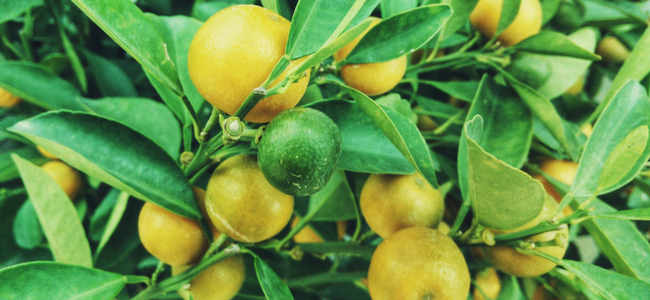
The FruitGuys Community Fund 2018 Grant Cycle is underway! This year, we received more than 130 letters of intent (LOIs) proposing many wonderful sustainability projects from very worthy farms. From the LOIs, our review committee selected 20 finalists based on specific criteria that includes regional distribution, project focus area and feasibility. We’ve invited the following farms to proceed with the application process:
The Roof Crop LLC, an urban farm growing across 30,000 square feet of rooftops in Chicago, IL, produces leafy greens, root vegetables, peppers, tomatoes, apples, herbs, and edible flowers. They requested a $3,600 grant to amplify their sustainability practices and create new educational and economic opportunities by adding three beehives to their flagship farm.
47 Daisies, a 12-acre agricultural non-profit in Vassalboro, ME, grows a mix of vegetables, fruit, and mushrooms distributed through retail outlets and 47 Daisies Food Access Programs for low income, seniors, and children. They requested a $4,000 grant to develop an orchard of peach, pear and plum trees in addition to native wildflower plantings to support pollinators, and bat and bluebird boxes to provide necessary habitat and natural pest control.
New Roots Market Garden, a 2-acre farm in Marshall, NC, grows a diverse mix of vegetable crops in addition to culinary herbs and cut flowers. They requested a $2,400 grant to enhance the vitality of their soils by applying high-quality compost, increase their beneficial insect populations by planting perennial hedgerows, and extend the growing season with a moveable caterpillar tunnel.
Northwest Meadowscapes LLC, a 12-acre family-farm in Coupeville, WA, grows native grass and wildflower seed mixes for habitat restoration and pollinator conservation in addition to growing and selling hay. They requested a $5,000 grant to restore a native wildflower meadow buffer on the northside of the farm to protect a rare brackish water estuary used as a nursery by juvenile salmon, surf smelt, shellfish, shorebirds, and other wildlife. They plan to establish this meadow using soil solarization with greenhouse plastic (an organic process), funding would cover the plastic and they would match the grant with native grass and wildflower seed.
The Ohio City Farm by The Refugee Response, a 6-acre agricultural non-profit serving newly arriving refugees in Cleveland, OH, grows over 60 crop varieties that are distributed through a CSA, direct to restaurants, and through a farmers’ markets. They requested a $3,500 grant to build an 8′ x 8′ cold storage facility to preserve the peak freshness of their produce.
Christensens Farm, a 7-acre family-farm in Browntown, WI, grows a diverse mix of fruits and vegetables in addition to having 400 laying hens, and honeybees. Their products are distributed at two farmers markets and through a CSA. They requested a $2,000 grant to increase their beehives to 8 hives, one of which would be an observation hive for educational curriculum with local 4-H, school, and community groups.
Hope Mountain Farm, a 4-acre farm in Leavenworth, WA, grows certified organic berries and vegetables in addition to keeping bees. They sell their products via farmers markets, restaurants, grocery stores, schools, on farm, and through a CSA. They requested a $5,000 grant to assist with transitioning to “no till” production by purchasing silage tarps, ground cover, and a “Pyroweeder,” eliminating the practice of tilling in weeds with a tractor/tiller and thereby improving soil health and minimizing water run-off.
Cattail Organics, a 5-acre farm in Athens, WI, grows a variety of vegetables, cut flowers, herbs, and maple syrup that is distributed direct to CSA members, restaurants, small groceries, and schools. They also donate weekly to local food banks and shelters. They requested a $4,600 grant to purchase a variety of tools, equipment, and seeds to support conservation efforts for beneficial insect habitat through a unique approach to lessening soil disturbance in annual vegetable and flower production.
Doce Lume Farm, a 2-acre farm in Frederick, MD, grows certified organic herbs and vegetables for wholesale. They requested a $2,000 grant to build an 8’x 92′ low tunnel to extend the growing season as well as establish a compost system. They plan to test compost and document the improvement of organic soil matter, weed suppression, and crop productivity to share with the Beginning Farmer Training Program network.
Puna Chocolate Company, an independent American chocolate producer with its farms in Hawaii, produces US-origin chocolate that is distributed mainly to the state of Hawaii and Illinois. In addition to cacao, their 25-acre farm on the Big Island of Hawaii, grows macadamia nuts, starfruit, guava, and bananas to use as additions in their chocolate bars, sell as individual goods, or convert into balsamic vinegars. They requested a $4,500 grant to improve soil quality and treat insect infestation on a sustainable basis that prevents pathogen proliferation and chemical use.

Namu Farm/Choi and Daughters Produce, a 2-acre farm in Winters, CA, grows East Asian herbs and vegetables and partners with Namu Gaji restaurant in SF, and also distributes a small veggie box to local Korean community in the East Bay in addition to producing commercial seed for Kitazawa Seed Company. They requested a $5,000 grant to preserve and improve heritage varieties of Asian vegetable crops with a focus on the needs of small scale organic farmers. Funding would go towards infrastructure for a hoop house, nursery benches, multiple sized screens, shade cloth and tools for hand processing of seeds.
Calliope Farm, a 2-acre farm in Salisbury, MD, grows organic, open-pollinated, heirloom and regional fruits and vegetables distributed through farmer’s markets, CSA, and restaurants. They requested a $5,000 grant to cover the cost of building a high tunnel to increase year-round production. Calliope Farm designed this lightweight, modular tunnel, built with inexpensive materials (PVC and wood). It can also be easily moved around the farm, helping preserve soil health. Funding would also allow them to make improvements on the original design, and document the building process with drawings, photographs, video, and detailed written instructions so that they can effectively share the design with other growers.
Fly Girl Farm, a 4-acre farm in Pescadero, CA that gives young aspiring female farmers an opportunity to experience all aspects of running a small farm, grows a wide variety of berries, vegetables, and cut flowers sold direct to customers at four local farmers’ markets and to local chefs. They requested a $5,000 grant to cover the cost of photovoltaic solar panels, a charge controller, a battery bank, and an inverter to harness and store the power needed for their small farm office and intern housing.
Canadian Valley Farms, an 80-acre family-farm in Lexington, OK, grows chemical-free heirloom fruits and vegetables in addition to keeping bees and producing meat products from heritage livestock breeds. They requested a $5,000 grant to add disease resistant apple varieties and blackberries to the farm, demonstrating that sustainable apple and blackberry production is a viable enterprise in their climate region.
Roshambo ArtFarm, a 52-acre farm in Sheridan, OR with pastures for sheep, alpaca, and chickens in addition to apple, quince, and pear orchards, requested a $4,500 grant to purchase a commercial grade wood chipper and mushroom spawn for inoculation of chip piles for their orchard and habitat areas. This would allow them to chip tree prunings to improve soil health in the orchard, and thereby health of the trees, by increasing habitat suitable for mycelium.
Radical Roots Farm, a 4-acre family-farm in Canterbury, CT, grows heirloom fruits and vegetables in addition to raising heritage livestock. They requested a $5,000 grant to purchase the tools, supplies, structures, and larvae to develop a composting system with Black Soldier Flies. This would allow them to utilize wastes, such as manure and expiring produce, and make supplemental feed high in protein and fat for their livestock.
Olden Organics, an 80-acre, fourth generation, family-farm, grows certified organic vegetables sold at farmers’ markets and wholesale to other processors, groceries, restaurants, schools and daycares. They requested a $5,000 grant to place solar panels on their cold storage, produce washing/packing, and certified processing kitchen facility.
Moon Dog Farms, a 17-acre family-farm in Sante Fe, Texas, grows Certified Naturally Grown fruits, vegetables, and flowers. They requested a $5,000 grant to purchase three caterpillar tunnel kits, shade cloths, and a silage tarp to extend their growing season, protect crops, and improve soil health. They plan to host on-farm workshops highlighting how this system can create protected micro climates for growing in the Texas Gulf Coast region.
Foggy Notion Farm, a 4-acre farm in Johnston, RI, grows fruit and vegetables without chemical inputs on historic farmland surrounded by the forests of Snake Den State Park. Their produce is distributed through a CSA, restaurants, farmers markets, and donations. They requested a $5,000 grant to plant an acre of diverse organic fruit and nut trees, brambles, and shrubs. As well as, a solar plug in station for powering no-till electric farm tools in the fields.
Root Mass Farm, a 5-acre farm in Oley, PA, grows a diverse mix of annual vegetables, melons, perennial herbs, and small berries. They use organic methods and place a strong emphasis on soil health while striving to create a vibrant farm ecosystem. Their produce is sold at two Philadelphia farmers’ markets and through a CSA. They requested a $5,000 grant to build a 24’x48′ high tunnel and plant 32 fig trees.
Our review committee will read and discuss the 2018 grantee finalist applications in detail and vote on up to 12 farms to fund this year. It’s not too late to get involved! There’s still time to join our volunteer review committee. Interested?



